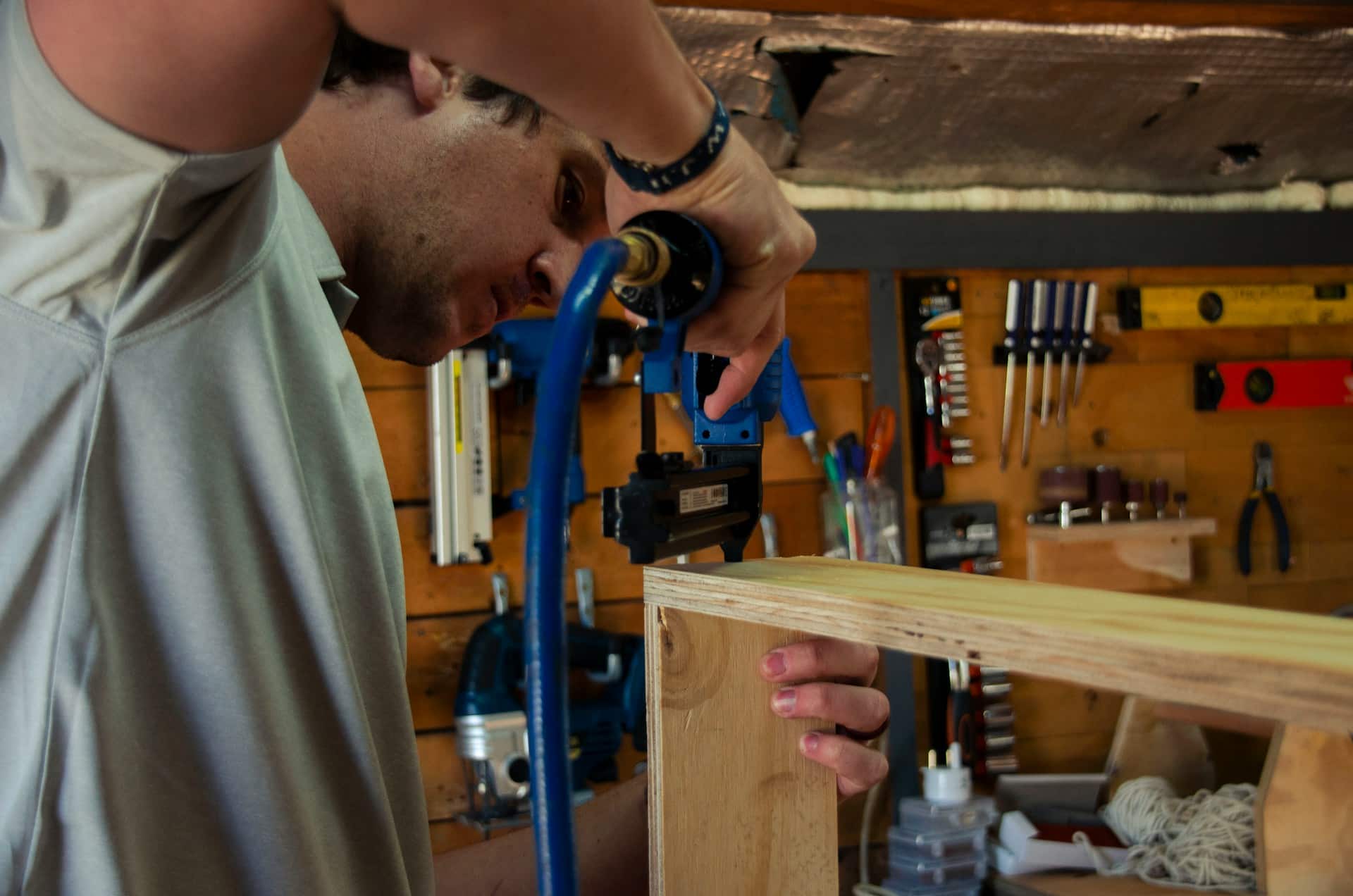How can UK furniture makers leverage sustainable materials to gain market share?

In an increasingly eco-conscious world, many industries are pushing towards more environmentally-friendly practices. In particular, the UK furniture industry is experiencing a shift towards using sustainable materials. This not only impacts the manufacturing process but also influences consumer choice. This article explores the ways in which the UK furniture industry can leverage these materials to gain a greater market share. We will look into the current market scenario, the role of online platforms, consumer behaviour and the significant benefits of sustainable design.
The Current Furniture Market Scenario
The UK furniture market has always been competitive and volatile. The rapid growth of online platforms and the increasing demand for eco-friendly products have made it crucial for manufacturers to adapt.
Avez-vous vu cela : What's the Role of Virtual Reality in Enhancing UK Real Estate Marketing?
According to a report published by the British Furniture Confederation, the UK furniture industry is worth over £17 billion. This industry directly provides jobs to approximately 337,000 people across 20,445 businesses. Despite these impressive figures, it has been predicted that conventional manufacturing processes and synthetic materials are on the decline.
The reason? The growing environmental awareness among consumers. An increasing number of customers are now prioritising products made from sustainable materials. This has prompted a significant shift in the industry, with manufacturers exploring more eco-friendly materials and production methods. As a result, businesses that can successfully leverage these changes will have an advantage in this competitive market.
A lire également : What are the implications of the UK's new sugar tax for beverage manufacturers?
The Role of Online Platforms
In this digital age, online platforms play a pivotal role in shaping consumers' choices. Most customers now prefer to shop online due to the convenience it offers. This trend has proven beneficial for manufacturers who have embraced online platforms as a way to reach a wider audience.
In fact, online platforms offer a unique advantage when it comes to promoting eco-friendly products. They enable manufacturers to thoroughly explain the environmental benefits of their products, the materials used, and the manufacturing process. By doing this, manufacturers can easily communicate their commitment to sustainability, a factor that is increasingly influencing consumer choice.
Furthermore, online platforms also provide a way for manufacturers to connect directly with their customers. They can use these platforms to educate their customers about their sustainable practices and build stronger relationships with them. This can help manufacturers establish a loyal customer base, which can have a significant impact on their market share.
Understanding Consumer Behaviour
Understanding consumer behaviour is crucial in leveraging sustainable materials effectively. There has been a significant shift in the consumer mindset, with many of them now prioritising sustainability over price and convenience.
A study by Unilever found that a third of consumers now choose to buy from brands they believe are doing social or environmental good. This shows that manufacturers who use sustainable materials and eco-friendly practices can potentially attract a large customer base.
It's not just about providing sustainable products but also about communicating this to your customers. Manufacturers need to highlight their commitment to the environment in their marketing strategies. Showcasing your eco-friendly practices can attract more customers and help your business stand out in a saturated market.
The Benefit of Sustainable Design
Sustainable design is not just beneficial for the environment, but it also provides economic benefits for manufacturers. Sustainable materials are often more durable than their synthetic counterparts, leading to longer-lasting products.
This can result in significant cost savings in the long run as it reduces the need for replacement or repairs. Furthermore, sustainability can also be a unique selling point for your products. Consumers are willing to pay a premium for products that are eco-friendly and sustainably produced.
As the demand for sustainable furniture continues to grow, manufacturers who can effectively leverage sustainable materials will likely see a significant increase in their market share. This is a clear indication that sustainability is the way forward for the UK furniture industry.
The Impact of Regulations and Policies
Regulations and policies play a substantial role in shaping the furniture industry. In recent years, the government has introduced several measures to encourage the use of sustainable materials.
These regulations and policies can present both challenges and opportunities for manufacturers. On one hand, they may require manufacturers to modify their existing manufacturing processes. But on the other hand, they serve as a driving force for manufacturers to innovate and adopt more eco-friendly practices.
Complying with these regulations can also enhance a company's reputation. Demonstrating compliance can show that the company is committed to environmental sustainability, which can attract more customers and boost market share.
In conclusion, leveraging sustainable materials not only helps the environment but also has the potential to significantly boost market share in the UK furniture industry. This opportunity for growth is a signal for manufacturers to fully embrace sustainability and incorporate it into their practices and products. By doing so, they can stand out in the competitive market and secure a brighter future for their business.
Adopting a Circular Economy Model
The concept of a circular economy has been gaining momentum in various industries and the furniture market is no exception. This model is based on the principles of designing out waste and pollution, keeping products and materials in use, and regenerating natural systems. Incorporating a circular economy approach into the furniture manufacturing process can significantly reduce environmental impact and provide a competitive advantage to manufacturers.
For furniture manufacturers, adopting a circular economy model involves prioritising the use of sustainable materials and considering the entire lifecycle of their products. It means creating high-quality furniture that is designed to last and can be repaired, refurbished, or recycled at the end of its useful life. It's about making informed decisions about the materials used in product design, considering their source, their environmental impact, and their ability to be recycled or composted.
Manufacturers can also look at their supply chain to identify areas where waste can be minimised. For example, they can work with suppliers who use sustainable packaging materials, or they can find ways to repurpose waste materials produced during the manufacturing process.
Highlighting these sustainable practices to potential customers can be a powerful selling point. It caters to the growing trend of eco-conscious consumers who appreciate companies that take responsibility for their environmental impact. This approach can not only boost the market share of furniture manufacturers but also foster customer loyalty and enhance the company's reputation.
Ashley Furniture: A Case Study
A prominent example of a company successfully leveraging sustainable materials is Ashley Furniture, one of the largest furniture manufacturers in the world. The company is committed to reducing its environmental footprint and has integrated sustainability into its operations.
Ashley Furniture uses sustainable materials in its products. They are committed to sourcing and manufacturing their furniture responsibly, ensuring that the timber they use is harvested sustainably. They also invest in energy-efficient manufacturing processes and use recycled materials wherever possible.
They have also adopted a circular economy model. They offer a furniture take-back program where customers can return their old furniture for recycling or re-purposing. This not only helps to reduce waste but also encourage consumers to make more sustainable choices.
Ashley Furniture's commitment to sustainability is not just beneficial for the environment. It has also given them a competitive edge in the furniture market. Their sustainable practices have resonated with eco-conscious consumers, leading to increased sales and a larger market share.
In addition, the company's reputation has been enhanced by its dedication to sustainability. Consumers are more likely to trust and support brands that are transparent about their environmental impact and take steps to reduce it. Therefore, Ashley Furniture serves as a model for other companies in the furniture industry who are looking to leverage sustainable materials to gain market share.
In Conclusion
The shift towards sustainability in the UK furniture industry presents a significant opportunity for manufacturers. By leveraging sustainable materials and adopting a circular economy model, furniture manufacturers can reduce their environmental impact and gain a competitive advantage.
It's not just about making eco-friendly furniture, but also about communicating these practices to consumers. In an age where consumers are becoming increasingly conscious of their environmental impact, brands that showcase transparency and commitment to sustainability are more likely to gain their trust and loyalty.
The example of Ashley Furniture shows that sustainability and business growth can go hand in hand. This should serve as a compelling motivation for other manufacturers in the UK furniture industry to follow suit. With the rise of eco-conscious consumers and supportive regulations, the future of the furniture market seems to be green. Manufacturers who embrace this stand to reap significant benefits and secure a sustainable future for their business.
